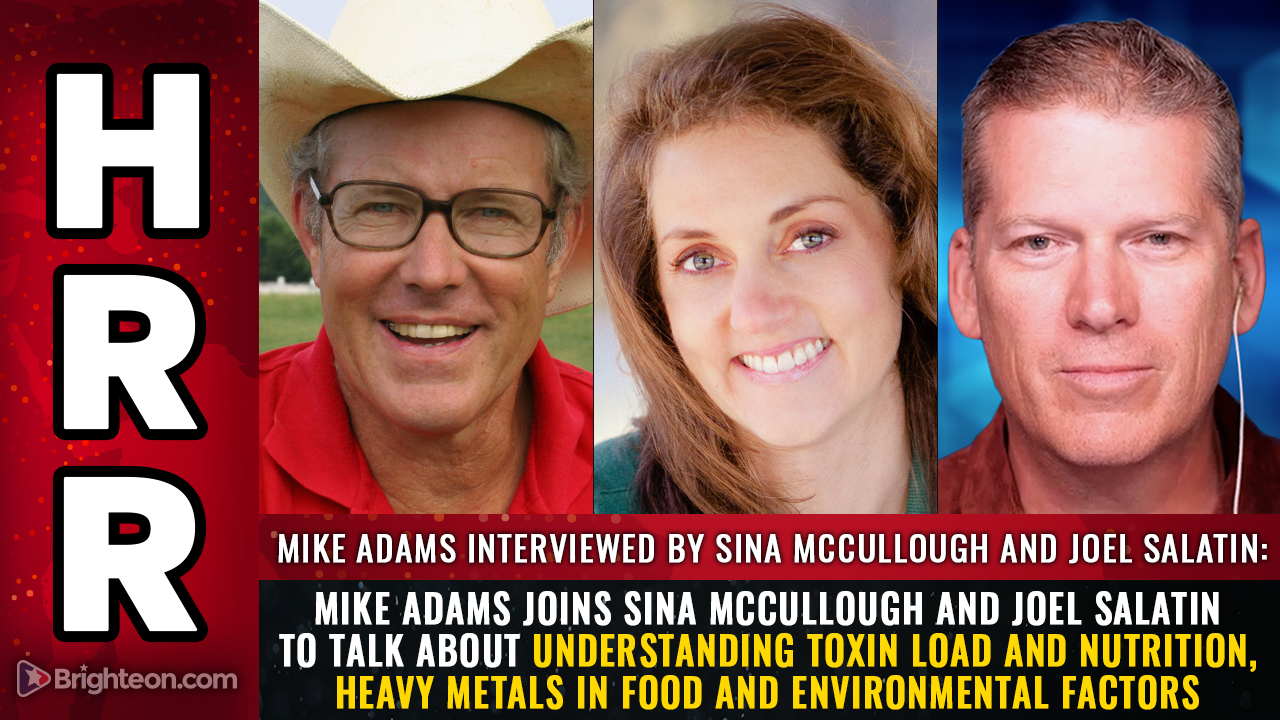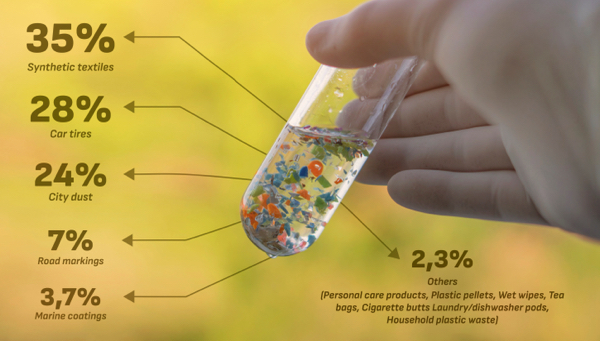 Parler
Parler Gab
Gab
- Mike Adams, Sina McCullough, and Joel Salatin advocate focusing on nutrition to enhance the body's natural defenses against toxins, countering fears about trace levels of environmental contaminants.
- Adams emphasizes that a well-nourished body, rich in trace minerals, vitamins, and phytonutrients, can effectively manage toxin exposure, rather than trying to eliminate all toxins.
- The experts debunk the glyphosate myth, arguing that the real threat is the overconsumption of nutrient-poor processed foods, which can hinder the body's natural detoxification processes.
- Salatin highlights the importance of high-quality, nutrient-dense foods, suggesting that organic, locally sourced, and minimally processed foods support a healthier body and environment.
- Practical tips include replacing processed meals with whole-food meals, eating a variety of colorful fruits and vegetables, and supporting local, organic farmers to build a more sustainable food system.
The power of nutrition
Mike Adams, known for his deep dive into health and wellness, started the conversation by addressing a common misconception: the belief that trace levels of toxins in food are a significant health threat. "We live in a world where toxins are everywhere," Adams acknowledged. "But the human body is incredibly resilient, and it can handle these exposures if it is well-nourished." Adams stressed that the key is not to eliminate all toxins, which is practically impossible in today's environment, but to fortify the body with the nutrients it needs to combat them. "A diet rich in trace minerals, vitamins, and phytonutrients can enhance your body's detoxification processes," he explained. "These nutrients support the liver, kidneys, and immune system, making them more effective at neutralizing and eliminating toxins."Debunking the glyphosate myth
One of the most hotly debated topics in recent years is the presence of glyphosate, a herbicide commonly found in food. Adams took a moment to debunk some of the fears surrounding glyphosate. "Trace levels of glyphosate are not the boogeyman they are often made out to be," he said. "The real issue is the overconsumption of processed foods that are devoid of essential nutrients." Sina McCullough, a nutritionist with a background in biochemistry, added, "Processed foods often contain high levels of sugars, unhealthy fats, and artificial additives, which can overwhelm the body's natural detoxification pathways. By contrast, a diet rich in whole foods provides the body with the building blocks it needs to function optimally."The role of whole foods
Joel Salatin, a renowned farmer and advocate for sustainable agriculture, chimed in to discuss the importance of sourcing high-quality, nutrient-dense foods. "The quality of the food you eat is paramount," Salatin emphasized. "Organic, locally sourced, and minimally processed foods are not just better for the environment; they are better for your health." Salatin highlighted the benefits of consuming foods that are rich in trace minerals and phytonutrients. "These nutrients are often found in the soil, and when the soil is healthy, the plants are healthy, and the animals that feed on those plants are healthy," he explained. "This cycle of health is what we need to focus on."Practical tips for a healthier diet
The discussion also provided practical tips for listeners looking to improve their diet and reduce their toxic burden. Adams suggested starting with a simple step: "Replace one processed meal with a whole-food meal each day. Over time, this can make a significant difference in your overall health." McCullough recommended incorporating a variety of colorful fruits and vegetables into the diet. "Each color represents different phytonutrients, and consuming a wide range can provide comprehensive support for your body's detoxification processes," she said. Salatin emphasized the importance of supporting local farmers and choosing organic options when possible. "By doing so, you not only get higher-quality food but also contribute to a more sustainable food system," he added.Call to action
The podcast concluded with a call to action. "Instead of living in fear of toxins, let's focus on building a strong, resilient body through nutrition," Adams said. "Empower yourself with knowledge and make informed choices about the food you eat." Sina McCullough and Joel Salatin echoed this sentiment, urging listeners to take control of their health by prioritizing a balanced, nutrient-rich diet. "The path to health is not about avoiding every potential toxin," Salatin concluded. "It's about giving your body the tools it needs to thrive." In a world where fear can often overshadow reason, the message from Adams, McCullough, and Salatin is a beacon of hope. By focusing on the power of nutrition, individuals can take proactive steps to build a healthier, more resilient body, capable of handling the challenges of the modern world. Watch this full episode of the "Health Ranger Report" with Mike Adams, the Health Ranger, Sina McCullough and Joel Salatin to talk about understanding toxin load and nutrition, heavy metals in food and environmental factors. This video is from the Health Ranger Report channel on Brighteon.com.More related stories:
“Healing Secrets from the Bible”: Ancient biblical wisdom holds key to vibrant health Health Ranger Report: Exploring biblical foods and herbs for HEALING Seasonal greens powders to help you maintain optimal winter nutrition Sources include: Brighteon.com TheLunaticFarmer.com DrSinaMcCullough.comBy Arsenio Toledo // Share
How a former Sandia engineer is revolutionizing a DIY hoop house
By Jacob Thomas // Share
Trump establishes new commission to tackle chronic disease epidemic
By Belle Carter // Share
Debunking the myth: Why “cow fart” vaccines will not solve climate change
By Willow Tohi // Share
Governments continue to obscure COVID-19 vaccine data amid rising concerns over excess deaths
By patricklewis // Share
Tech giant Microsoft backs EXTINCTION with its support of carbon capture programs
By ramontomeydw // Share
Germany to resume arms exports to Israel despite repeated ceasefire violations
By isabelle // Share










